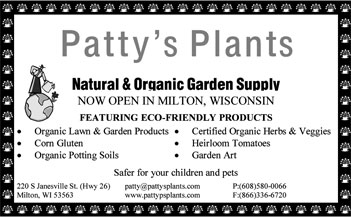Reading recipes and ingredient lists has become a bit of a national pastime in these United States. Cooking and chefs are becoming the new pop stars in the national media and the safety and health effects (positive and negative) of food have become borderline obsessions with many of us. It may be perfectly natural, or it may be the ultimate irony that Americans expect more than ever before to be inspired, excited and gratified rather than merely refueled by what’s on the table—and in the same breath, have come to scrutinize with growing concern the major roadways of our food production and the processes that alter our food before it gets to us.
No one in the business of selling food has missed the import of the “new” ways of looking at and thinking about food in our national markets. Claims abound on labels referring to the contents of the food you buy, often as much in terms of what the food does not contain as what it does. Buzzwords designed to appeal to the desire for good health are everywhere. Customer goodwill and good faith translate into added value and added profits for producers who can make a credible case that their food is better for you or better for the environment than mass-market products. A third important value factor recently studied and described in The Wall Street Journal is “ethical production.” Their study showed that consumers were willing to pay substantially higher prices for goods they felt had been manufactured with a strong social or civic commitment in mind—and that they expected a steep discount on products that are made without the well-being of employees or the environment used as benchmarks of successful business practice. In sum, companies from the smallest to the largest now know that better prices can be commanded if there is a “wellness” appeal in their product—and in a time where food prices are famously on the rise, consumers understandably have high expectations for what their food dollar is buying. This is true of no one more than myself, both in terms of wanting optimal flavor and freshness and wanting food I feel right about feeding my family. Putting food on my family, as one of our elected officials has put it.
All this adds up to a business environment where there is tremendous pressure put on food producers to keep their methods on the up-and-up—but the free-floating anxiety about healthfulness, coupled with a constant deluge of sometimes inconsistent if not downright contradictory information, has consumers in an equally vulnerable position. There’s no doubt that some purveyors have been and will be less than scrupulous or forthcoming when labeling their foods with an eye to taking advantage of market trends without being able to back it up on the production line.
At the Willy Street Co-op Kitchen, we’re no strangers to keeping an eye on our ingredients and spending the time and money to get what our members want or need in their food. Our coolers are stocked almost completely with certified organic produce and, while it may not always be possible for us to use certified organic meats due to cost, we are careful to avoid meat fed hormones or raised on feedlots. We pride ourselves on our patronage of meat producers like Willow Creek and Cates Family Farm, who offer not only a superior product flavor-wise but have been approved by the Animal Welfare Institute.
In my professional and personal travels, I have encountered many food service establishments advertising the use of seasonal/local/organic products “whenever possible” or “whenever available.” You may have seen these sorts of phrases as well, on restaurant menus or on sign boards in delis. There’s nothing inherently wrong with language like this so long as the customer-merchant trust bond is strong. But if it isn’t....”possible” and “available” are very difficult to quantify precisely. “Possible” might mean “within our budget.” “Available” might mean “at the price we’re willing to pay.” And that’s totally understandable. All businesses have budget structures that, to some extent, dictate the meaning of these terms. However, in my experience, they’re often used cynically to capture an undeserved market share of concerned consumers or charge a premium price on an item little different from a mass-market counterpart.
Because of all this, we have decided to make absolute and non-negotiable commitments in two areas of our purchasing. Starting September 1st, 2008, all fresh produceused in Willy Street Co-op Kitchen products will be certified organic and all cheese will be of Wisconsin manufacture (which adds to our commitment of already providing only Wisconsin-made milk, butter and eggs. These definitions are not hard to comprehend or verify-one is a legal definition and one is a geopolitical boundary, both must be specified without ambiguity on product labeling. It is not the end of our commitments to you in terms of the highest quality and greatest integrity of ingredients, but a beginning that is not subject to circumstance or whim. If produce is not organic, we will not use it in our product. Cheese must be made in Wisconsin to come in on our dock. (Some cheese will be certified organic as well; please ask the counter staff in the Deli.) We hope this will make clear, as individuated labeling sometimes cannot (or can, but is too time-consuming to easily use when shopping and in a hurry), what our priorities are and what our guarantee to you is concerning the content of your food.


 This email address is being protected from spambots. You need JavaScript enabled to view it.
This email address is being protected from spambots. You need JavaScript enabled to view it.